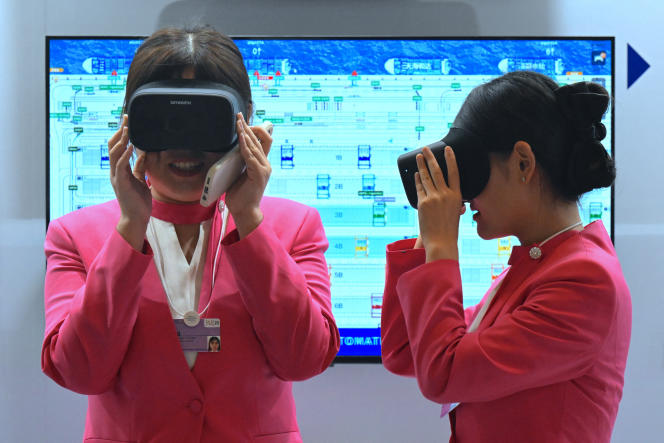For the first time in France, a survey initiated by the Case study for a responsible immersive (Cepir) and funded by the State has attempted to report on the environmental footprint of virtual reality. The preliminary restitution of Monday, June 26 highlighted the ecological cost of manufacturing helmets. The final results are expected at the end of the year.
More and more players are seeking to reconcile environmental concerns and the development of virtual reality. The game RecyclageVR, for example, which allows participants to immerse themselves in the world of selective sorting, or the one under development within the National Institute for Research in Digital Sciences and Technologies (Inria), which reveals the reverse side of our food choices, share the same objective: to try to influence our climaticidal behaviour. By giving us experiences “as if we were there”these helmets, or big goggles, would allow us, in addition to raising our awareness effectively, to avoid travel and therefore to curb our greenhouse gas emissions.
“A lot of information is very abstract and difficult to grasp. We therefore wondered how we could make the information more educational, explains Martin Hachet, director of research at Inria on the interactions between humans and machines. For example, we can show everything that we don’t usually see about our food: greenhouse gas emissions, the sacrifice of forests used to plant soybeans, transport…” Through sensory experience, researchers are trying to help users take action and reduce their carbon footprint. Other projects, developed for the health or engineering sector, also pursue ends hailed as useful.
“Use a cannon to kill a fly”
“It’s feeling the heat of the heat waves and seeing the effects of the drought that make us aware of the problem”, considers for his part Frédéric Bordage, independent expert in digital sobriety and creator of the Green IT collective, for whom the awareness of the changes in progress can pass by other, more traditional means. The economy of travel induced by the use of virtual reality headsets does not convince the sobriety consultant either. “As long as this idea has not been demonstrated on a scientific basis and shared by all, it is not an argument”he says.
You have 60.7% of this article left to read. The following is for subscribers only.
